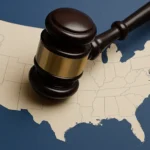
On Wednesday, January 17, the Supreme Court heard oral arguments in Relentless, Inc. v. Department of Commerce and Loper Bright Enterprises v. Raimondo. A ruling in both cases hinges upon the constitutionality of the Chevron Doctrine, established by the Supreme Court in Chevron v. Natural Resources Defense Council. The Doctrine instructs courts to defer to an agency’s “reasonable” interpretation of a statute when “ambiguity” exists within the text. In the specific instances of Loper and Relentless, the Department of Commerce implemented onerous regulations upon fishermen, justifying their actions by claiming ambiguity in the Magnuson-Stevens Fishery Conservation and Management Act of 1976.
Solicitor General Prelogar focused primarily on the impact of overturning Chevron. She argued that overturning the doctrine would cause instability, as judges around the country would be deciding the meaning of statutes and essentially making policy choices. She also argued that ending Chevron might lead to the relitigation of many cases in which Chevron had previously been applied. Counsels Martinez and Clement, for Relentless and Loper respectively, countered by noting that Chevron causes instability as agency interpretations of statutes change with every presidential election. Further, they argued that stare decisis meant that relitigation of old Chevron would not be a concern. They requested the Court reverse Chevron on constitutional grounds, for violating the separation of powers, though they noted the Court could also utilize the Administrative Procedures Act and avoid the constitutional issues related to Chevron.
Among the justices, the most vocal in defense of Chevron was Justice Kagan, who argued that Congress often cannot predict what regulations will be needed for new technology, and therefore leaves holes in statutes that it wants agencies, rather than Courts to fill. Justices Gorsuch and Alito, by contrast, seemed skeptical of Chevron and its continued use. Justice Gorsuch noted the way that Chevron restricts the Courts from coming to the best interpretation of the law in favor of an agency expectation. Justice Alito cast doubt on the idea that judges would be engaging in policy creation if Chevron is reversed, noting that traditional statutory interpretation will act as guides for judges determining the legality of agency action.
Ultimately, Landmark is guardedly optimistic that the Supreme Court will see the error of Chevron and move to reverse it, so that the bureaucratic state can be reined in.
SUPPORT LANDMARK LEGAL FOUNDATION
We are truly facing existential threats to our individual rights and liberties, the Constitution, and our national character. If unchallenged, this assault on our very way of life will ruin our great nation. With your financial and moral support, Landmark is not going to let that happen without a fight. Will you join us?
JOIN OUR MAILING LIST
Never miss an update from Landmark Legal Foundation as we continue the fight to preserve America’s principles and defend the Constitution from the radical left.
Landmark will NEVER share your contact information and we will not flood your inbox.





